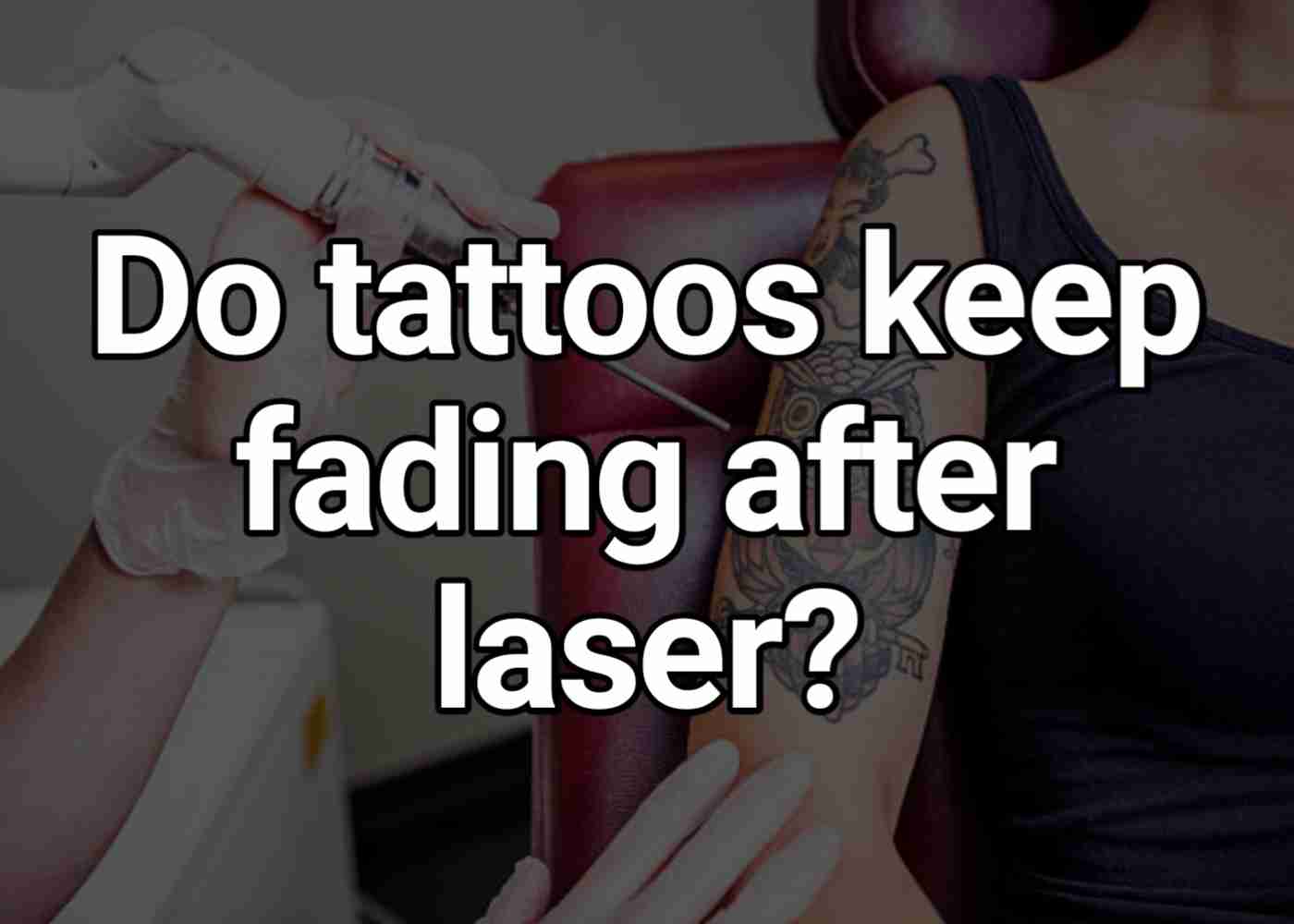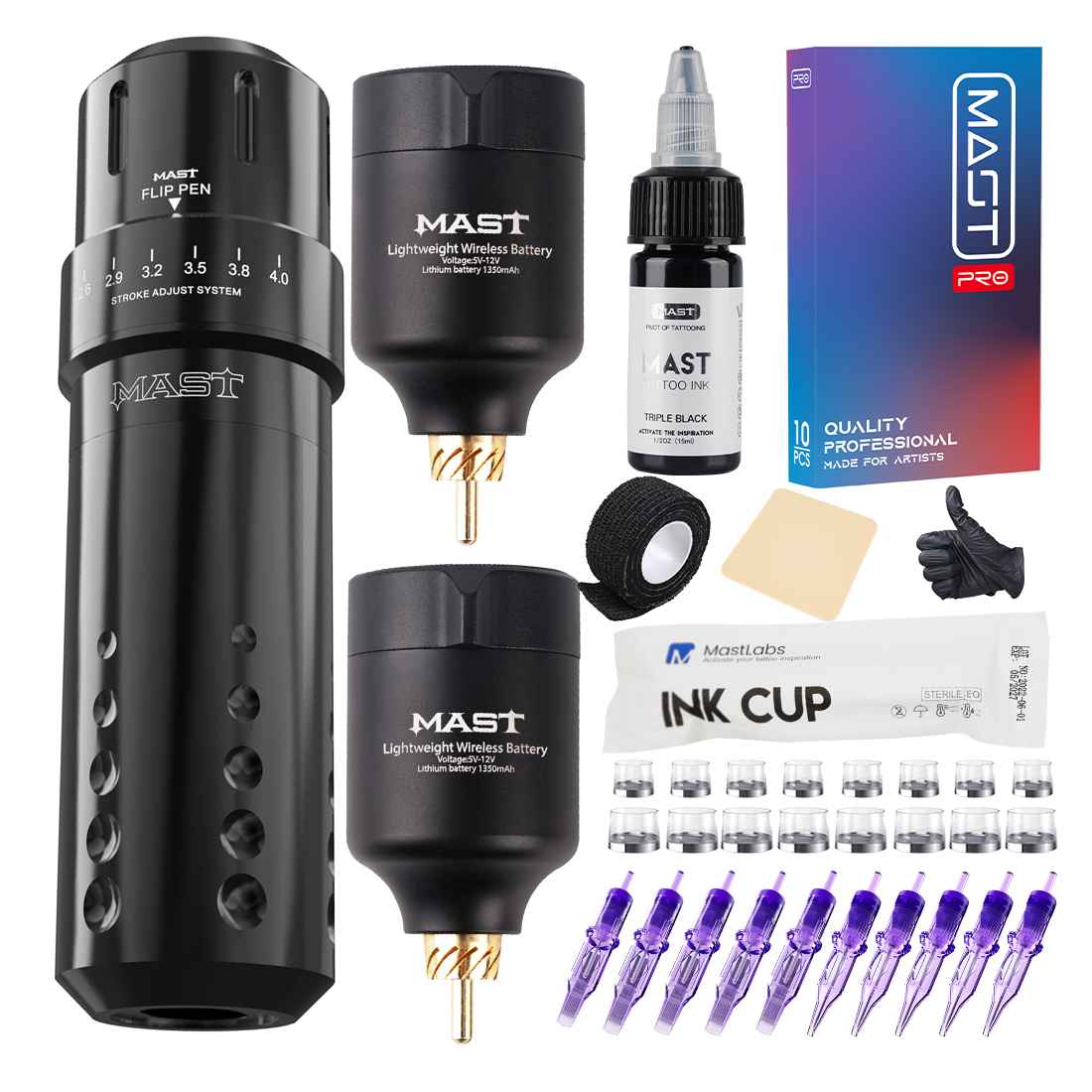It is generally thought that tattoos fade after laser treatment.
With repeated treatments, tattoos may eventually disappear completely.
This leads to the question, “Do tattoos keep fading after laser?”
The short answer is yes, tattoos will fade after laser treatment.
The long answer is that fading depends on a variety of factors including the type of tattoo and the laser used.
There are many different types of lasers and each produces different results.
Generally, lasers work by breaking down the pigment in the tattoo and this can lead to fading over time.
The amount of fading will vary depending on the tattoo and the laser used, but it’s typically not reversible.
Can you do laser tattoo removal at home?
Are you considering tattoo removal but are afraid of the pain and expense?
You may be able to remove your tattoos at home using a laser.
There are several types of lasers that can be used for tattoo removal, and the process is relatively painless.
However, there are a few things to keep in mind before you start.
:- First, make sure you have an accurate estimate of how much pain the procedure will cause.
:- Second, research which type of laser is best suited for your specific skin type.
:- Third, be sure to follow the manufacturer’s instructions carefully for safe and effective use.
:- Fourth, always seek medical attention if any complications arise during or after the procedure.
:- Finally, remember that tattoos may not disappear completely — they may only become less visible over time.
Also read: How to become a laser tattoo removal technician in Australia
Does laser tattoo removal affect immune system?
Some people fear that laser tattoo removal could damage their immune system over time, as the lasers used in this procedure can also potentially cause burns and scarring.
Many people who have tattoos assume that the removal process will not affect their immune system.
However, research has indicated that laser tattoo removal can actually weaken the immune system.
The reason for this is that the laser light damages cells in the skin and releases cytokines, which are proteins that activate the immune system.
A study published in the journal Dermatology found that people who have laser tattoo removal are at a higher risk for infection, specifically with HPV.
The study was conducted on 204 people who had either laser tattoo removal or sunburn treatment done at a dermatology clinic.
The participants were evaluated for the presence of HPV 6, 11, 16 and 18 months after the treatment.
Approximately 50% of those who had laser tattoo removal were infected with HPV 6 or 11 compared to only 2% of those who had sunburn treatment.
Additionally, those who received laser tattoo removal were more likely to experience adverse events such as swelling, redness and pain.
Why do I feel sick after laser tattoo removal?
Anyone who has ever had a laser tattoo removal treatment can attest to the fact that the process can be quite uncomfortable.
In some cases, patients experience mild pain during and after the procedure, but in others, they may feel sick to their stomach.
The cause of this varies from person to person, but there are a few common factors that may contribute.
One of the most common reasons why people feel sick after laser tattoo removal is because of the intense light used during the procedure.
This light stimulates the body’s immune system, which in turn causes nausea and vomiting.
Additionally, many people experience soreness and swelling following laser tattoo removal treatments, which can also trigger sickness.
Finally, some individuals are simply more sensitive than others when it comes to pain and discomfort, so they may react more severely than others.
Also read: How to become a laser tattoo removal technician in the UK
Can laser tattoo removal cause heavy metal poisoning?
Many people are unaware that laser tattoo removal, even from small areas like the wrist or ankle, can be very risky if done without proper precautions.
The lasers used in these procedures emit strong light that can damage the skin and surrounding tissue.
This can lead to heavy metal poisoning if the person has a pre-existing condition such as kidney disease or liver disease that is aggravated by exposure to heavy metals.
In severe cases, this type of exposure can even result in death.
Anyone considering laser tattoo removal should speak with their doctor first to ensure they are aware of the risks and make an informed decision.
Also read: How to become a laser tattoo removal technician in California
Does laser tattoo removal affect hair growth?
The answer to this question is still up for debate, but some studies have shown that it can.
While there is no evidence that laser tattoo removal will cause permanent hair loss, it may cause temporary thinning and decreased hair density.
If you are considering laser tattoo removal, it is important to speak with your dermatologist about the potential risks and benefits of the procedure before making a decision.
Does laser tattoo removal turn hair white?
Contrary to popular belief, there is no scientific evidence that laser treatment of tattoos will cause significant hair loss.
While it is possible for lightening to occur after tattoo removal treatments, this usually only affects the color of the treated area and not the hair follicles themselves.
Therefore, most people do not experience any significant changes in their hair color following laser tattoo removal.
Also read: How to become a laser tattoo removal technician in Florida
Will my eyebrows grow back after tattoo removal?
Eyebrows are one of the most commonly tattooed body parts, so it’s no surprise that many people ask if their eyebrows will grow back after getting them removed.
The answer to this question largely depends on the type of eyebrow tattoo that was removed and how extensively it was done.
If a single thread or very small amount of ink was involved, then chances are good that the brow hairs will start to grow back in relatively short order.
However, if an eyebrow tattoo consisted of several layers or if more substantial ink was used, then regrowth may be slower or even non-existent.
Why are my eyebrows red after laser tattoo removal?
Eyebrows can be red after laser tattoo removal if the ink is not removed completely.
The laser passes through the skin to remove the tattoo and some of the surrounding tissue.
If there is any ink left in the hairs on top of your eyebrow, it will heat up and cause them to turn red.
You can try using an eyebrow brush to help remove any residual ink before it causes further irritation.
If this does not work, you may need to have a more extensive treatment done by a doctor.
Also read: How to become a laser tattoo removal technician in Texas
Do you have to shave eyebrows for laser tattoo removal?
There is no one answer to this question since it depends on your individual skin type and the tattoo itself.
If a tattoo consists of small, densely packed inkblots, then shaving may not be necessary.
However, if a tattoo covers a large area or is particularly dense, then shaving may be required in order to avoid causing any missed areas that could lead to additional unwanted pigment transfer.
Another factor to consider when deciding whether or not to shave eyebrows for laser tattoo removal is the quality of the lasers used by various clinics.
Higher quality lasers can penetrate thicker hair more easily without causing any inflammation or scarring, while lower quality lasers may require more aggressive shaving techniques in order to achieve satisfactory results.
Also read: Can laser tattoo removal fail?
Conclusion
Wrapping it up on the question – do tattoos keep fading after laser?
Yes, tattoos do fade after laser treatment, but the fading process is slow and may require several sessions.
If you are considering laser tattoo removal, it is important to consult with a board-certified dermatologist who will be able to recommend the most effective treatment for your individual case.






